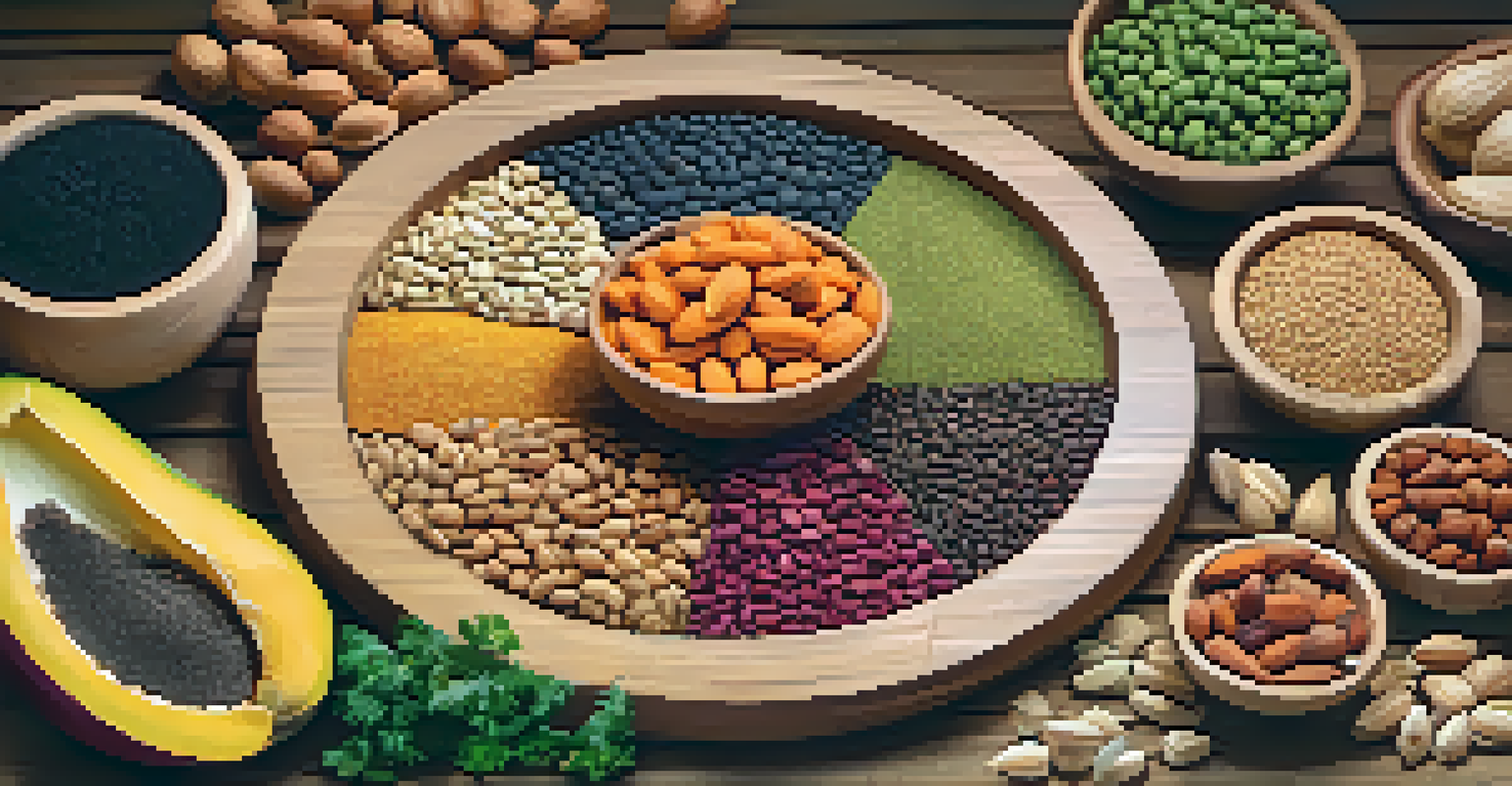The Benefits of a Plant-Based Diet for Immune Function

Understanding Immune Function and Its Importance
The immune system is your body's defense against infections and diseases. It consists of a network of cells, tissues, and organs that work together to protect you. Maintaining a robust immune function is crucial, especially during cold and flu season or in times of stress.
Let food be thy medicine and medicine be thy food.
When your immune system is strong, it can effectively respond to threats and heal itself more efficiently. This is where nutrition plays a pivotal role. The foods you consume can either bolster or weaken your immune response, making dietary choices essential.
A plant-based diet is rich in vitamins, minerals, and antioxidants that support immune health. By choosing whole, plant-based foods, you're providing your body with the tools it needs to fight off illness and maintain optimal health.
Nutrient Density: Key Players in Immune Support
Plant-based foods are often nutrient-dense, meaning they provide a high amount of nutrients relative to their calorie content. This is particularly important for immune function, as nutrients like vitamins C and E, zinc, and beta-carotene help in building a resilient immune system.

Fruits and vegetables, such as oranges, spinach, and sweet potatoes, are excellent sources of these essential nutrients. By incorporating a variety of colorful produce into your meals, you can ensure you're getting a broad spectrum of vitamins that enhance immune response.
Nutrition Boosts Immune Health
A plant-based diet rich in vitamins and minerals is essential for maintaining a strong immune system.
Moreover, legumes, nuts, and seeds are not only packed with nutrients but also provide healthy fats and protein, which are vital for overall health. This nutrient synergy helps your immune system function at its best.
Antioxidants: Nature's Defense Against Inflammation
Antioxidants are compounds that help combat oxidative stress in the body, which can weaken the immune system. Many plant-based foods are rich in antioxidants, including berries, dark leafy greens, and nuts. These foods help reduce inflammation, a key factor in many chronic illnesses.
The greatest wealth is health.
When you consume a diet high in antioxidants, you're essentially equipping your body with a shield against the harmful effects of free radicals. This is particularly important for maintaining a strong immune system, as chronic inflammation can impair its function.
Including a variety of antioxidant-rich foods in your diet not only supports your immune function but also contributes to overall health. It's like giving your body a natural defense mechanism, allowing it to thrive.
Fiber: The Unsung Hero for Immune Health
Fiber is often overlooked when discussing immune health, but it's a crucial component of a plant-based diet. A high-fiber diet promotes a healthy gut microbiome, which plays an essential role in immune function. A balanced gut can improve your body's ability to fight off infections.
Foods like whole grains, legumes, fruits, and vegetables are fantastic sources of dietary fiber. When you eat fiber-rich foods, you're not just aiding digestion; you're also fostering a thriving community of beneficial bacteria in your gut.
Fiber Supports Gut Immunity
High-fiber foods promote a healthy gut microbiome, which enhances the body's ability to fight off infections.
These friendly microbes communicate with your immune system, enhancing its response to pathogens. So, when you choose fiber-rich plant foods, you're effectively supporting your immune system from the inside out.
Phytochemicals: Nature's Immune Boosters
Phytochemicals are bioactive compounds found in plants that have been shown to enhance immune function. These substances, which include flavonoids and polyphenols, are known for their anti-inflammatory and antioxidant properties. Incorporating a variety of plant foods can significantly increase your intake of these beneficial compounds.
For instance, foods like garlic, onions, and green tea are rich in phytochemicals that help modulate immune responses. By regularly consuming these foods, you're not just adding flavor to your meals; you're also strengthening your body's defenses.
The more colorful your plate, the richer the phytochemical diversity you'll enjoy. This variety is key for maximizing immune support and overall health.
The Role of Hydration in Immune Function
Staying hydrated is crucial for maintaining a healthy immune system, and a plant-based diet can help with that. Many fruits and vegetables have high water content, which can contribute to your daily hydration needs. Proper hydration supports every cell in your body, including those that make up your immune system.
When you’re well-hydrated, your body can more effectively transport nutrients and eliminate toxins, which is vital for immune health. Foods like cucumbers, watermelon, and oranges can not only quench your thirst but also provide essential vitamins and minerals.
Hydration Aids Immune Function
Staying hydrated with water-rich fruits and vegetables is crucial for optimal immune response and nutrient transport.
In addition to consuming hydrating foods, it's important to drink plenty of water throughout the day. Together, these practices can create a solid foundation for a strong immune system.
Practical Tips for Transitioning to a Plant-Based Diet
Transitioning to a plant-based diet doesn't have to be overwhelming. Start by gradually incorporating more plant foods into your meals, such as replacing meat with beans or lentils. This way, you can enjoy the health benefits without feeling deprived.
Experiment with new recipes that highlight the flavors and textures of plant ingredients. Consider joining a local cooking class or exploring online resources to discover how delicious plant-based meals can be.

Remember, it's about progress, not perfection. Even small changes can lead to significant improvements in your immune function and overall health. Over time, you'll likely find a balance that works for you and your lifestyle.